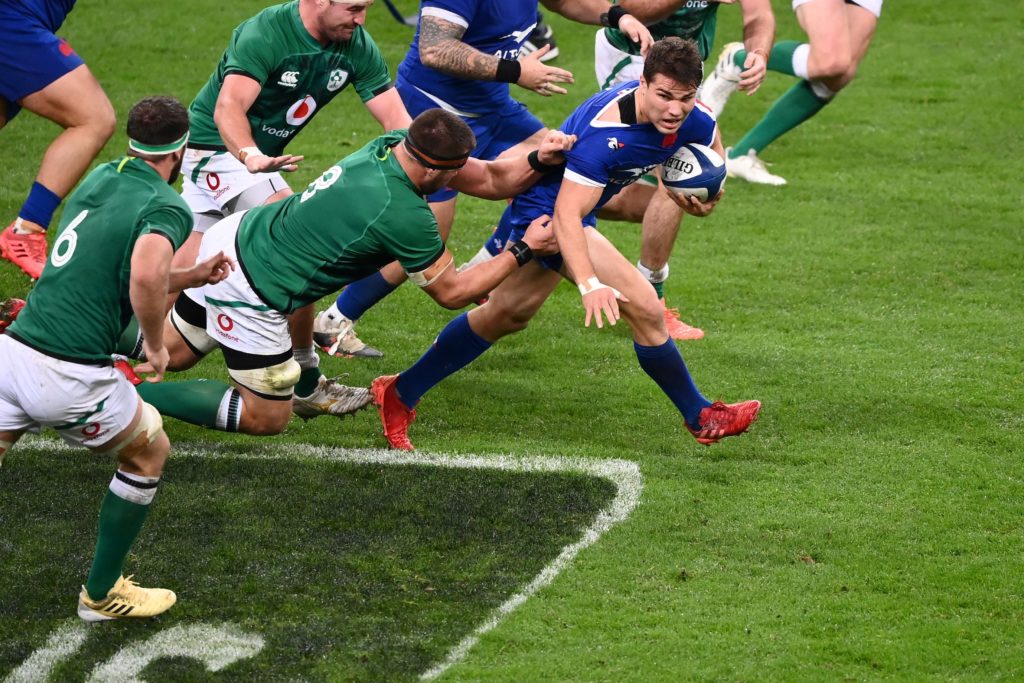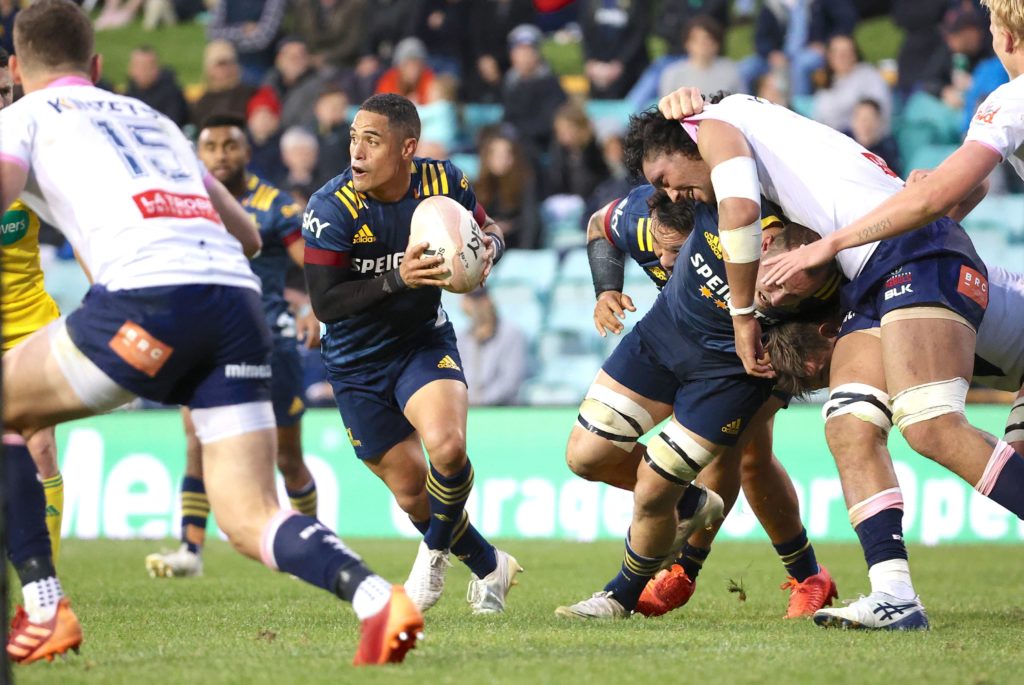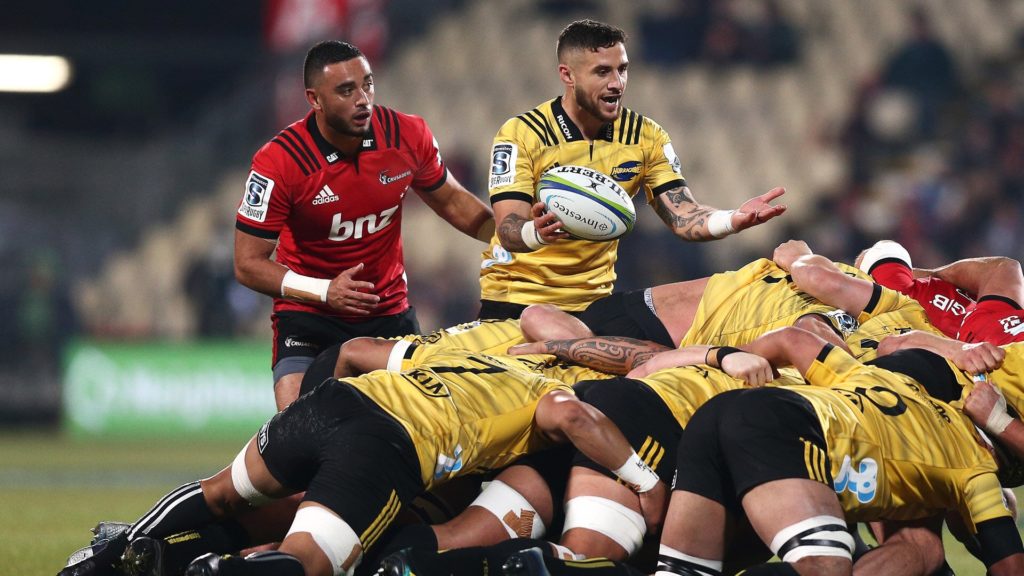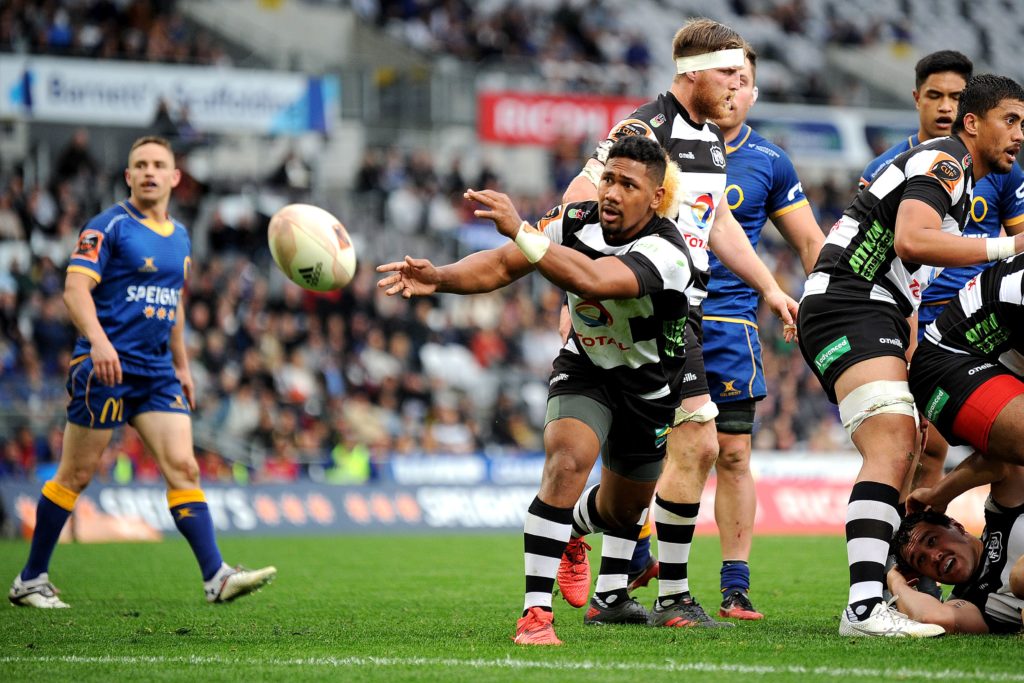Judging by what has been in Super Rugby, the All Blacks are going to have two distinct versions of themselves in 2021.
They will be one team when Aaron Smith is on the field and a different one when he’s not as, what’s become apparent this year, is that the veteran halfback has taken his already extraordinary game to a higher level.
There were claims in February this year, endorsed by Smith himself, that French halfback Antoine Dupont is now the world’s best No 9. “No one is near him atm,” Smith said of Dupont in a Twitter thread.
“He’s the point of difference for both his club and country. He’s helping me look at parts of my game to improve.”
At the time, Dupont was playing superbly for France in the Six Nations and entirely worthy of being seen as the best in the world. But four months on and the picture has changed.

Smith was obviously not kidding when he said he was putting his own game under review as a consequence of Dupont’s form.
Smith has been consistently sensational this year, playing brilliantly against the Crusaders in game one of Super Rugby Aotearoa right through to the Highlanders third round clash against the Rebels in Super Rugby Transtasman.
The 32-year-old has seemingly taken his conditioning to an almost unbelievable point where he has been able to get to almost every breakdown and keep doing so for at least 70 minutes if not 75.
He’s been making that look effortless, but the real kicker has been the way he has added subtle touches to his overall game. Mostly, he still arrives at a breakdown, puts his hands on the ball and whips it away.
But he’s been mixing things up more this year, expertly opting to switch who he sees as the first receiver, while also occasionally running more himself to pull defenders on to him.
Smith has never lacked confidence or a voice, but what he’s brought this year is maturity, composure and astute leadership in his capacity as co-captain.
The subtleties of how he’s refined his game are not so important to understand. What is important to understand, however, is that he’s been the architect of everything good the Highlanders have done this year.
Smith has never played better than he has this year. His passing has been phenomenal: so sharp, relentlessly accurate and impactful. His decision-making has been nearly faultless and he’s almost played more as a No 10 in regard to his tactical influence.
And that’s the point to grasp here with Smith – he’s a player around whom so much can be built because of his combined physical abilities and strategic management.
Smith has never lacked confidence or a voice, but what he’s brought this year is maturity, composure and astute leadership in his capacity as co-captain.
Responsibility has sat easily on his shoulders and it has been apparent that he’s relished having that opportunity to talk to referees and media as part of his role.

Holding office, so to speak, has enabled him to grow in stature and in turn, win greater respect from his peers. Smith is a man who is more comfortable in his own skin than he’s ever been.
He’s married, has a young family, is contracted through to 2023 and loving the challenge of growing a young, inexperienced Highlanders side into a title-winning team.
Come the test programme, the All Blacks, despite having world class No 10s in Richie Mo’unga and Beauden Barrett, are going to use Smith as a strategic director.
He’s so good at taking pressure off his No 10 and giving defences something additional to worry about that his presence alone, goes a long towards striking caution in a rush defence.
The problem for the All Blacks, though, is that Smith can’t play every minute of every game and without him, they instantly become a different team.
Perenara is hugely experienced and combative, but there remain concerns about his decision-making in the test arena. There is also the added problem that he hasn’t played Super Rugby this year – instead playing a club season in Japan.
Strength in depth is not typically an issue in New Zealand. But it arguably is at halfback. There are wings queuing up to be picked, loose forwards everywhere, a handful of good and great locks and plenty of useful front-rowers.
There is not, however, a seemingly endless supply of test quality No 9s. At the moment, the All Blacks have Smith and Brad Weber in their sights.
The latter has been around for an age but has only a handful of test caps as despite producing consistently strong performances for the Chiefs since 2016, he only won a regular squad place with the national team in 2019.
It took the All Blacks an age to be convinced by Weber, who brings a similar skill-set to Smith. That’s in some ways part of the problem as the All Blacks have preferred, for the last five years at least, to operate with the more muscular and abrasive TJ Perenara on the bench for the point of difference he brings when he comes on.
Perenara is hugely experienced and combative, but there remain concerns about his decision-making in the test arena. There is also the added problem that he hasn’t played Super Rugby this year – instead playing a club season in Japan.

Smith is 32 and Weber 31 so arguably what the All Blacks need to do this year is decide whether they re-commit to picking Perenara or find a younger third halfback to develop in time for the World Cup.
Earlier this year, former All Black John Kirwan made his feelings clear about where he stood on the subject of Perenara.
“You cannot re-sign him,” Kirwan said. “I love the man, don’t get me wrong. But who do you want to keep?
“Because I think there’s some young guys coming through and for the next World Cup I just think [they need to focus on developing them].
“Look, I’d love to sign him but if it was a case of signing a couple of young guys that are going to get us to the next World Cup, as good and on further, then I think he’s going to be [omitted].”
Neither Weber nor Perenara bring anywhere near the same range of skills as Smith. The gap between the All Blacks first choice No 9 and second choice – whoever that turns out to be – is significant.
New Zealand Rugby have committed to bringing Perenara back, but that doesn’t disguise the unpalatable truth that the All Blacks have an issue at halfback.
Neither Weber nor Perenara bring anywhere near the same range of skills as Smith. The gap between the All Blacks first choice No 9 and second choice – whoever that turns out to be – is significant.
And what’s causing deeper concern, is that there is not yet an emerging halfback on the scene to change the picture in the short to medium term. Even if the All Blacks decide it is time this year to jettison the 29-year-old Perenara from their plans and invest in a younger option, it’s not clear at all who that would be.
Folau Fakatava, the youngster playing at the Highlanders, was starting to progress well this year in Super Rugby after a strong provincial campaign in 2020. He’s not going to play again this year because of injury, however, and then there is some doubt about when he will become eligible for New Zealand.
The rules around residency requirements are set to change at the end of this year – pushing from three years to five the length of time players have to spend in an adopted country to become eligible.
Fakatava, as a result, may not become eligible for the All Blacks until 2023.

The next most promising halfback is Finlay Christie of the Blues, who has been plagued by injury in the last two years. He’s finally coming right and starting to show his ability now that he is playing pain free and building a bank of game time.
Maybe he’s in line to be called up this year, but even if he is, there is a long way for him to go before he becomes a test player of some influence and standing.
Pickings look slim elsewhere. Mitchell Drummond at the Crusaders is a handy player but has never convinced he’s ready to go beyond Super Rugby. Which is much the same with his team-mate Bryn Hall and if there is one thing beyond dispute, it is that the All Blacks will be in a spot of trouble if Smith is seriously injured any time in the next two-and-a-half years.
If he stays fit and in his current form, the All Blacks are going to be hard to contain because he will enable them to play faster and wider than opponents will be able to cope with.
Lose him for whatever reason and the All Blacks will have to majorly re-think what their attack will look like.



Comments
Join free and tell us what you really think!
Sign up for free